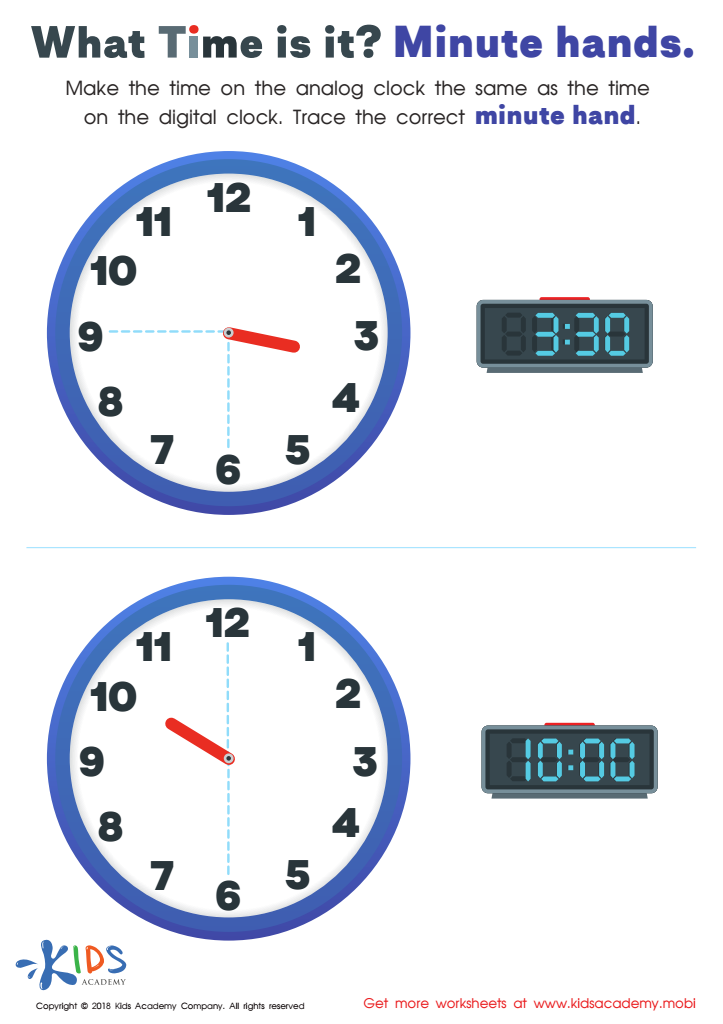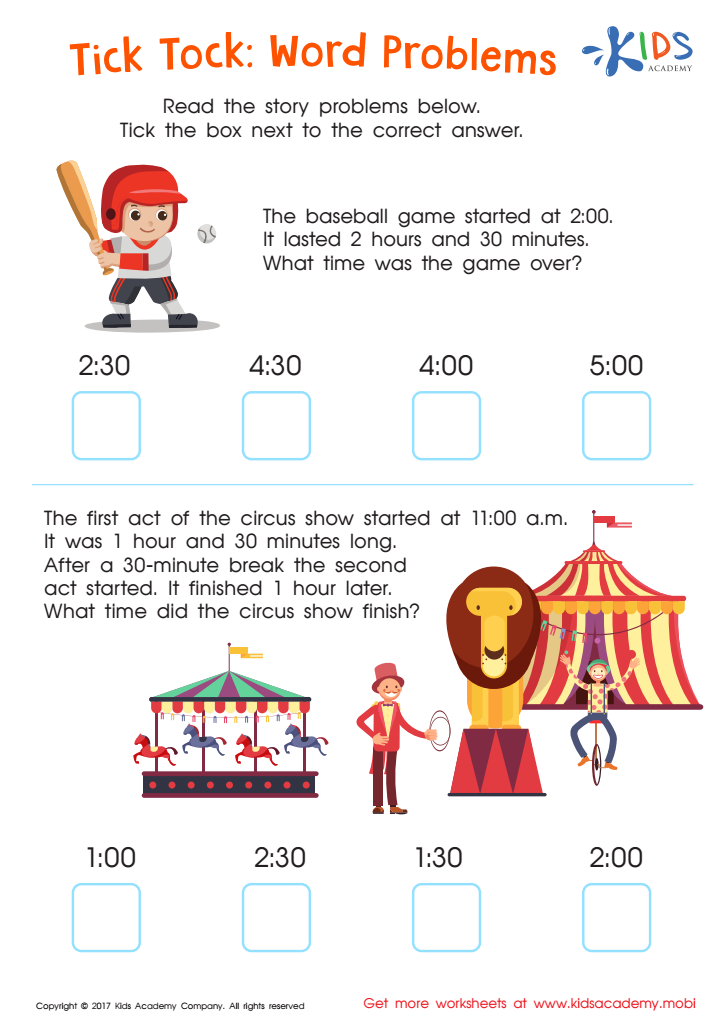Time calculation skills Math Worksheets for Ages 6-9
3 filtered results
-
From - To
Discover our engaging Time Calculation Skills Math Worksheets designed specifically for children ages 6-9! These worksheets help young learners grasp essential concepts of telling time, including reading clocks, understanding hours and minutes, and mastering AM/PM distinctions. Crafted to enhance problem-solving abilities and boost confidence, our interactive activities make learning fun and effective. Ideal for classroom or home use, these resources support parents and educators aiming to foster foundational math skills in a playful environment. With a variety of exercises that cater to different learning styles, your child will develop proficiency in time management while having a great time!


What Time Is it? Minute Hands Worksheet


Tick Tock Word Problems Time Worksheet
Time calculation skills are essential for children aged 6-9 as they lay the groundwork for effective time management and personal responsibility. At this developmental stage, children are navigating routines and beginning to understand the concept of time in their daily lives. Mastering time-related math not only enhances their mathematical proficiency but also boosts their ability to plan and organize tasks, essential skills for academic success and beyond.
Understanding how to read clocks, measure intervals, and calculate elapsed time helps children develop critical thinking and problem-solving skills. These abilities will benefit them in future math concepts and in real-life situations, shaping them into independent learners who can manage their time effectively.
Moreover, proficient time calculation fosters a sense of autonomy. Children become more confident as they learn to schedule activities, make appointments, and balance playtime with responsibilities. It also enhances communication skills, allowing them to understand and express time-related questions and information.
Therefore, parents and teachers should prioritize time calculation skills, as fostering these skills can significantly contribute to a child's overall development, preparing them not only for upper-grade academic demands but also for real-world life skills that will benefit them throughout their lives.
 Assign to My Students
Assign to My Students





















